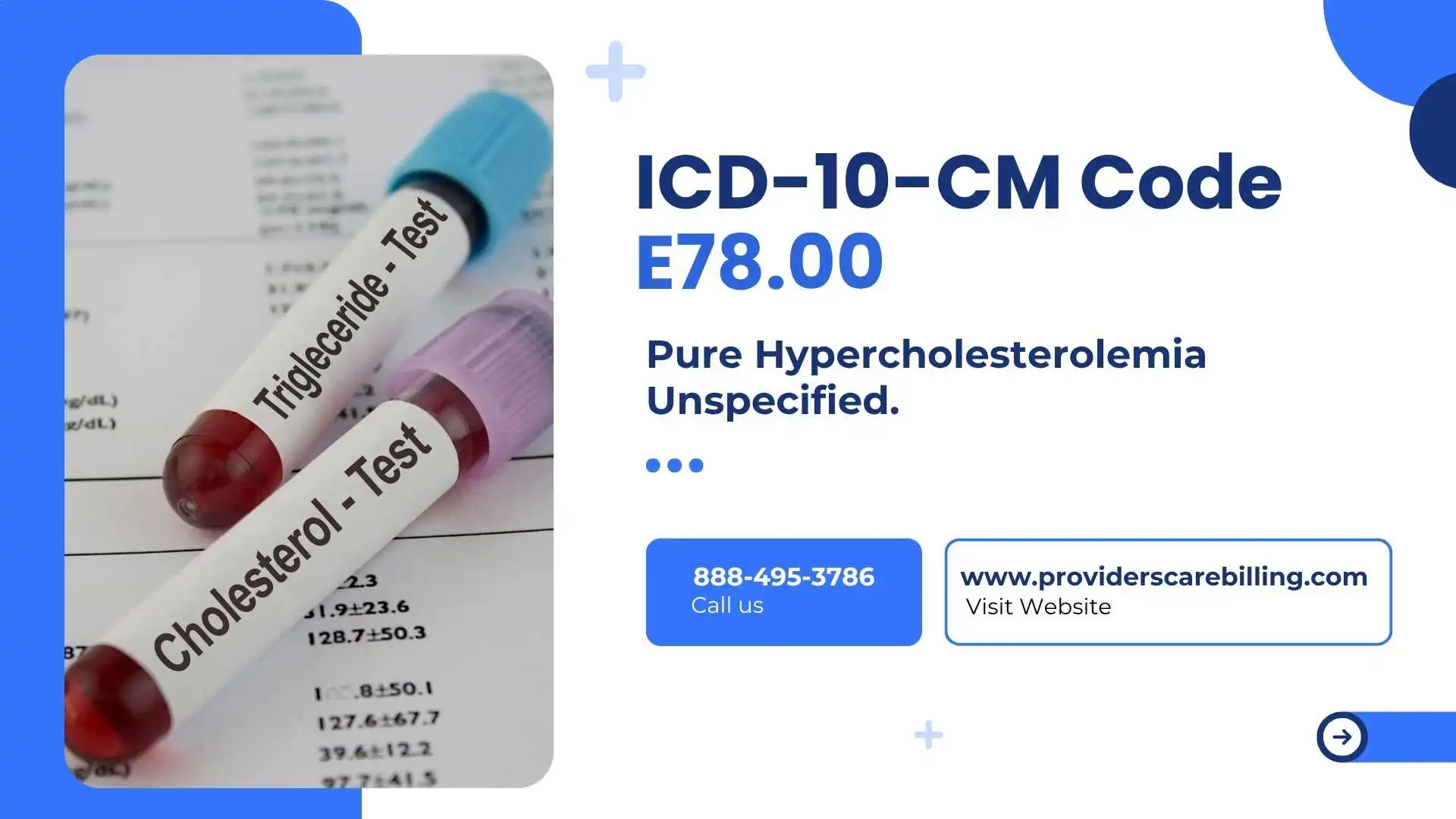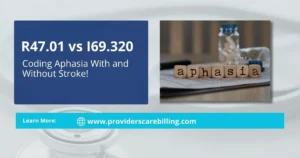You may have seen the term “pure hypercholesterolemia” in a health or insurance paper. It may sound difficult, but it means very high cholesterol in your blood. This condition does not involve other fat problems. Doctors use a special code, ICD-10-CM Code E78.00 – Pure Hypercholesterolemia Unspecified, to report this condition. This code is part of a system called ICD-10-CM, which helps record health issues.
In this article, we will explain this in a simple and clear way. We’ll also discuss how this code fits other coding systems and compare ICD-11 and ICD-12 to 26.
Hypercholesterolemia
First, we will explain hypercholesterolemia. Your blood needs a certain quantity of cholesterol. It helps produce hormones and promote proper digestion. However, if its quantity increases, it can cause blood clogging in arteries, which may further cause heart failure or stroke.
When we say “ pure hypercholesterolemia,” we mean LDL cholesterol is harmful but without other fat issues. It can be passed down through families or occur if you have a poor diet or lack of exercise.
Pure Hypercholesterolemia and ICD-10-CM Code
The ICD-10-CM code E78.00 means pure high cholesterol without other issues. Doctors use this code when they find high cholesterol in a patient. Hospitals record it in your medical file for future reference and care. Insurance companies use the code to handle bills and process claims correctly.
If you see E78.00 on a report, it means only high cholesterol is found. This code is not linked to any other cholesterol-related problems.
You may also see it listed under terms like:
- Hypercholesterolemia ICD 10
- ICD-10 high cholesterol
- Pure hypercholesterolemia ICD-10 code
- ICD-10 code for high cholesterol
Related ICD-10 Codes and What They Mean
ICD-10 has several cholesterol-related codes. Along with E78.00, here are some others worth knowing that may help you understand the correct meaning of this code.
E78.5 – If you see this code, it means elevated lipoprotein levels, cholesterol, and other fats. It may also be labeled as e87.5 diagnosis code description or e78.5 ICD-10 code. Whatever code you see, the meanings are the same.
However, using the correct code is essential because pure hypercholesterolemia ICD-10 differs from general elevated lipids. Using the correct code helps to understand the problem correctly and find the cause.
Understanding ICD and Why It Matters
The ICD system is managed by the World Health Organization (WHO). It’s used worldwide to track diseases and medical conditions. It helps in:
- Organizing patient records
- Making billing accurate
- Supporting global health research
Doctors and medical staff still use the ICD-10-CM code in the USA, while some other countries have started using the ICD-11-CM code.
How Does ICD-11 Handle High Cholesterol Better than ICD-10?
ICD-11 covers both pure and elevated hypercholesterolemia. This newer code system covers all cholesterol issues. There is no need for ICD-10 after ICD-11. It’s only a difference of words, but the main ideas remain the same. The test aims to identify and track high cholesterol levels to find the illness’s root cause.
To assess the impact of high cholesterol on internal organs, imaging procedures like CT scans are sometimes required. In such cases, understanding CPT Code 74177, used for combined abdomen and pelvis CT scans, can help ensure accurate billing and proper documentation
Have the ICD-12 to ICD-26 Versions been released?
No, no such versions are still in use. You may also hear about ICD-12 to ICD-26 codes, but you do not need to worry because they are future versions that have not been released.
- Hypercholesterolemia ICD 12
- Hypercholesterolemia ICD 13
- hypercholesterolemia ICD 26
You might just be trying to check if future versions of ICD will still include codes for high cholesterol. With advancement, new codes will likely cover the problems more accurately. So, nothing to be confused about if you hear about ICD, 14, 16, 20, etc.
How does using a correct ICD code help?
A correct code helps in many ways, it is not only to find the correct high cholesterol level, but it also helps in:
- Doctors understand the problem correctly and choose the proper treatment.
- Health insurance processes claims correctly and prevents delays.
- Public health teams track heart disease trends.
- Researchers analyze how common high cholesterol is.
So, whether it’s E78.00 or E78.5, every number has meaning.
What Doctors Recommend to Diagnose Pure Hypercholesterolemia?
Usually, doctors ask you for a lipid panel. Your blood sample is taken to check for.
- Total cholesterol
- LDL (bad cholesterol)
- HDL (good cholesterol)
- Triglycerides
If your LDL is very high, but other levels are normal, and there are no other lipid disorders, E78.00 will likely be used. In that case, the doctor will mark it as:
- Pure hypercholesterolemia ICD 10
This tells the whole care team what they’re dealing with—and what steps to take next.
What Treatment for High Cholesterol?
Usually, people become panicked when they know they have pure hypercholesterolemia, but it is a common problem. You can easily manage it in simple ways:
- You make it your habit to eat a heart-healthy diet
- Set a routine for regular exercise, which lowers the cholesterol level.
- Losing weight if needed.
- Avoiding smoking
- Taking medication like statins (if prescribed)
Who Is at Risk?
Anyone can develop hypercholesterolemia, but the risk goes up if:
- It runs in your family (genetic)
- You eat a lot of fried, sugary, or fatty foods.
- You don’t exercise much.
- You have diabetes or other health conditions.
- You’re overweight
What Common Codes are used in Medical Reports?
Here’s a quick overview of keyword phrases you might see on your medical records or bills:
- Hypercholesterolemia ICD 10 – General high cholesterol
- ICD 10 high cholesterol – Same as above
- Pure hypercholesterolemia ICD 10 – High LDL only
- Elevated cholesterol ICD 10 – Sometimes used interchangeably
- Elevated cholesterol ICD 11 – Used in the latest version
- Pure hypercholesterolemia ICD 11, 12, 13…26 – Represent future tracking systems
Final Thoughts
Now that you have gone through the discussion, you know about pure hypercholesterolemia. It is a common name that doctors use, which means high LDL cholesterol, but without other fat-related problems. If you see E78.00 on your medical bill, you know its meaning. A correct code on the bill helps doctors, patients, and insurers.
The best thing is that after understanding it, you also see the difference from other related codes. ICD-10 and ICD-11 are the same; these codes are used in medical reports. However, ICD codes 12 to ICD-26 are not in use and may start being used.





